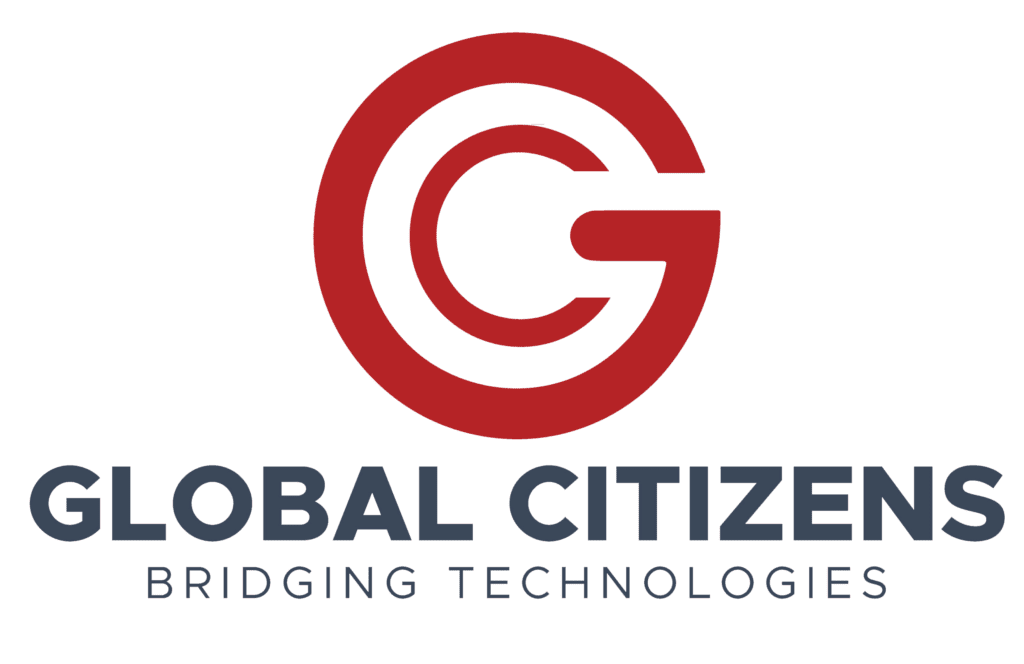Among the various offshore software outsourcing options, Vietnam is proven to be a dynamic and effective environment for offshore software development in the Southeast. The country offers a qualified, cost-effective talent pool. In recent years, Vietnam has been visited by many software companies from the US, Australia, Canada, and Japan.
- Vietnam ranked 1st in Global Outsourcing Destination by C&W, 2015.
- Vietnam ranks 13th in the Top 50 digital countries (Tholons Services Globalization COUNTRY INDEX – 2019).
- Vietnam ranks 5th in the AT Kearney Global Service Placement Index (GSLI) – 2019.
If you plan to leverage the tech talent in this exciting market, you should take into account some of the following insights as they can help you prepare for a successful offshore development project. in Viet Nam.
Ready to outsource
The recent Vietnam IT Market Report 2020 declared that Vietnam is a promising outsourcing destination by providing many statistics about the Vietnam software development market. According to reports, in Vietnam there are about 400,000 IT engineers. And this number is still growing. It is estimated that nearly 50,000 IT students will graduate from 153 IT institutions adding to the IT talent pool each year. This is not a small number and it clearly shows the attractiveness of the IT profession in Vietnam.
Besides, more than half of Vietnam’s population is under 30 years old. They are young, dynamic and learn quickly, this is a significant benefit when choosing Vietnam to outsource software development. Some technology giants have chosen Vietnam for both production and R&D activities such as Intel, Samsung, Microsoft, Fujitsu, Foxconn, Panasonic, Bosch, Alcatel-Lucent, Amdocs, Avaya, Cisco, Juniper Networks NEC, Toshiba, Hitachi , LG, HP,..
Diverse technical skill set
The technical skills of Vietnamese engineers are very diverse from Backend, Frontend, Full-stack to Database,… partly showing the ability to handle many projects with different requirements. The main technical skill sets can be listed as follows:
- Backend development family: C, Java, .Net, PHP, Python, NodeJS, Ruby/Ruby on Rails, Pers, Scale and Goland
- Database : Oracle, SQL, MySQL, PostgreSQL, MongoDB, Redis
- Frontend : Angular and ReactJS, HTML, CSS, Javascript, WordPress and Magento
- Mobile : Android, iOS, Xamarin, Flutter
- Full stack programmer
Furthermore, there are many other positions that cater to project implementation from start to finish such as business analysts, project managers, UI/UX designers, Agile facilitators, etc.
The dominance of Agile & Scrum
Agile and Scrum are the most popular methods for developers to manage projects. More and more IT companies in Vietnam are applying this method in their software development management to increase their team’s productivity and work effectively with their customers. It is estimated that by Q1 2020, more than 80% of Vietnamese IT companies are applying Agile in their software development. Indeed, Agile brings many specific benefits in optimization:
- Quality development and testing through regular work and review across teams to build high-quality software.
- Business value and customer satisfaction by keeping customers continuously involved in the project implementation process and regularly updated on project progress. Clients can make adjustments to their expectations and desires throughout the project. Therefore, it makes customer-developer collaboration better, ensures that deliverables align with business values, and gives customers higher satisfaction.
- Quality of software by focusing on real user needs and allowing for changes in the development process.
Average level of English
To be honest, you cannot expect the same level of English in Vietnam as in Thailand, Philippines or Malaysia. Vietnamese engineers are good at engineering because they received a solid STEM education from an early age. They may also be good at reading and writing English but not able to speak it. Many developers in Vietnam work directly with customers via email and chat.
Nowadays, many Vietnamese IT companies are trying to train their internal English skills for their software development team. They provide their employees with free English courses at different levels, which means a lot in improving their ability to meet job requirements. If you are still worried about the language barrier in communicating with Vietnamese IT engineers, here are some tips for your reference:
- Make sure to have a Senior/PM on your software development team. Many senior engineers and project managers work on global projects and collaborate with distributed teams that are fluent in English. They can act as team leaders to maintain smooth communication. This can help take advantage of talented engineers who are not good at English.
- Try to visualize your project as much as possible. To overcome the language barrier, you might consider visualizing your communication using email, design, sketching, wireframe, and process flow to better communicate with them.
- Make sure to provide the development team with a clear SRS (Software Requirements Specification) so that they can correctly understand all aspects and requirements of the project before starting any analytical action. .
- Provides an overview of business domain knowledge and ideas behind business requirements. This will aid them in deeply understanding what they are going to do, proactively solving problems, and asking the right questions.
Indirect communication
Vietnamese developers are generally friendly and kind but not too direct in communication. Culturally, this communication style is how Vietnamese people show their politeness to others. However, this sometimes causes some problems in collecting their feedback, especially negative feedback to ensure transparent communication. To solve this problem, you should establish ground rules for information exchange and communication from the beginning. And don’t forget to get a mutual agreement from all parties involved.
A good example is when it is difficult to meet a deadline, Vietnamese developers may feel guilty and not notify you early. The solution here is to make it clear that you expect early warnings of a delay and to pay attention to signals or clues that they are likely to be late.
Work hard
Most Vietnamese engineers are young and hardworking. When projects are at their peak, they are willing to work overtime to meet deadlines.
Coming from a developing country, they were eager to get their hands dirty and gain more experience. Students are willing to participate in internship programs to improve practical skills. That way, they can develop their careers and improve their living standards.
Vietnamese family ties are very close. Young people go to work to financially support their families, parents and loved ones. That’s why they work hard and rarely complain, even when under pressure. Some senior engineers also take on freelance projects in addition to their full-time jobs. It helps to gain more experience, but sometimes it can affect productivity in daily work. In this case, just make sure to clarify your requirements regarding working hours with them to reach a mutual agreement on it.
Soft skills
Soft skills such as communication skills or presentation skills can sometimes be a challenge for Vietnamese developers. They are taught everything they need to excel in technical skills but are rarely given any tuition in these soft skills. To help them get out of their comfort zone, many IT companies offer employees mentor-mentee relationships, giving them the opportunity to communicate with others, speak up, and receive advice to personal development. Additionally, a series of internal and external workshops give developers the opportunity to speak publicly, share experiences, improve presentation skills, and learn from others.
on time
Vietnamese staff is quite punctual. However, being late for about 5 minutes is also a normal and accepted thing in Vietnamese working culture. They are serious in business meetings, so sometimes they look more tense than relaxed.
Shy but kind
Influenced by Asian culture, Vietnamese people are generally very shy. People who spend most of their time working with computers, such as engineers, are even more shy. There are many team building activities in technology companies, such as company trips, monthly team building parties, project launch parties, birthday parties, year-end parties, etc. This association helps people be more open and active.
As far as we know, there are hardly any political connections in this IT industry. Vietnamese engineers tend to support each other a lot so their teamwork is quite good. In general, there is no sexism or racism in Vietnam or the IT industry.
However, when a character’s shyness is combined with insufficient English communication, they are afraid to ask questions and sometimes work on assumptions. Therefore, it is essential to break down tasks and continuously monitor progress to know whether they understand what is required and what to do.
Annual leave day
According to Vietnam Labor Law, employees have at least 12 days of annual leave. Some IT companies even give their developers sick leave and Christmas leave.
National holiday
Like other countries, Vietnam has many national holidays such as: New Year (January 1), Hung Kings Commemoration (March 10 – Lunar calendar), National Unification (April 30). ), International Labor Day (May 1), National Day (September 2) and Lunar New Year.
The longest is Lunar New Year – Lunar New Year, with about ten days off among these holidays. It is best to notify your Vietnamese Outsourcing partner about this vacation in advance to adjust your work plan accordingly.
Take a nap after lunch
Taking a nap after lunch is a cultural feature in Vietnam. It’s not surprising to see offices turn off the lights at noon, and people take naps at their desks. This will restore energy for the afternoon. That’s why a typical lunch break is about 1.5 hours.
Social culture
The social life of Vietnamese people is different from place to place. There are some key points that you can pay attention to:
- Vietnamese names in order: Last name – Middle name – First name and last name use First name to call each other.
- Vietnamese people tend to build trust and intimacy by eating together outside of work hours. If you have an overseas software development team in Vietnam, you may have the opportunity to sing karaoke and go out for lunch/dinner. That way they show hospitality and respect to their guests. And vice versa, they can expect the same.
- They don’t take the handshake culture seriously. A loose handshake doesn’t mean they’re unconfident or impolite. They just don’t do it often and don’t know how to do it right.
- They can have lots of conversations about sports, food, travel, music and movies, but not politics.
Compensation and benefits
Vietnamese engineers tend to negotiate “net salary” while other countries prefer to use “gross salary”. In addition, at the end of the year, employees will usually receive a Lunar New Year bonus as their 13th month salary, in addition to salary and other performance-based bonuses. Usually, it’s one to several months’ salary.
Conclusion
It is no exaggeration to say that Vietnam has witnessed huge changes in its development process, especially in the IT industry. There may be a disadvantage in communicating in English and developing soft skills, but Vietnamese programmers with great work ethic and strong technical skills are constantly striving to improve themselves every day. . This partly explains why Vietnam is quickly becoming a potential destination for software outsourcing development.
In this short article, we cannot tell you everything about the outsourcing culture in Vietnam. However, hopefully we’ve provided you with some insights that can help you make a better decision in choosing a country to develop your software in.
Nissim de Babani
Nissim is the Vice President of Marketing and Co-Founder of Global Citizens Technologies, an outsourcing company based in Ho Chi Minh City, Vietnam. He believes in connecting cultures and technologies and spent most of his adult life in Canada, Israel and Vietnam to realize this vision. He has more than 15 years of business experience in these areas. He is an entrepreneur and investor, and his passion is business development in the tech startup environment. He can’t start his day without a cup of mint tea and he loves spending time traveling with his kids.

